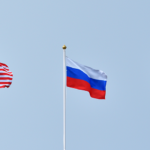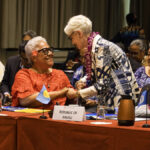Bilateral and multilateral arms control for limiting theatre- and strategic-range missile systems is in a quandary. Even though the US, Russia and China have each put forward proposals for arms-control and risk-reduction measures, conflicting interests and adversarial relations have so far served to stymie any progress. In this report, three experts – one American, one Russian and one Chinese – examine selected arms-control and risk-reduction proposals from their respective countries, and assess their potential contributions to strategic stability.
The last remaining strategic-arms-control treaty between Russia and the United States will expire in February 2026, with little prospect of a follow-on agreement. Russia’s war in Ukraine has upended the European security order and the adversarial relationship between Moscow and NATO has dashed any chance of near-term engagement. China, meanwhile, has steadily expanded its nuclear- and conventional-missile arsenals, and has thus far only sporadically engaged in consultations with the US.
The US, Russia and China have over the last five years tabled proposals for arms-control and risk-reduction measures that each viewed as mitigating arms-racing, lowering the risk of nuclear use and contributing to upholding global non-proliferation norms. However, conflicting interests and adversarial relations have so far served to stymie any progress.
In this report, three experts – one American, one Russian and one Chinese – set out an examination of selected arms-control and risk-reduction proposals from their respective countries, and assess their potential contributions to strategic stability. They also provide short critiques of the proposals tabled by the other two countries, thereby highlighting both the differences and the commonalities between the positions currently held by Washington, Moscow and Beijing.
Each country’s apparent position on pursuing new arms-control agreements is untenable or unacceptable in the eyes of one or both of the other two. The arms-control impasse between the US and Russia could in principle be alleviated by pursuing more informal approaches, but the near-term prospects for negotiations are poor, given the two countries’ adversarial relationship, the diminished political will on both sides and the fact that both have increasingly come to perceive certain types of missile system as useful. China’s proposed ‘No-first-use of Nuclear Weapons Initiative’, as currently conceived, is unlikely to be considered seriously in Russia or the US, for various political and technical reasons.
While the current arms-control landscape remains troubling, the maintenance of dialogue between experts such as the contributors to this report will be crucial for shaping initiatives that may become feasible in future, if the political climate improves.












Add Comment